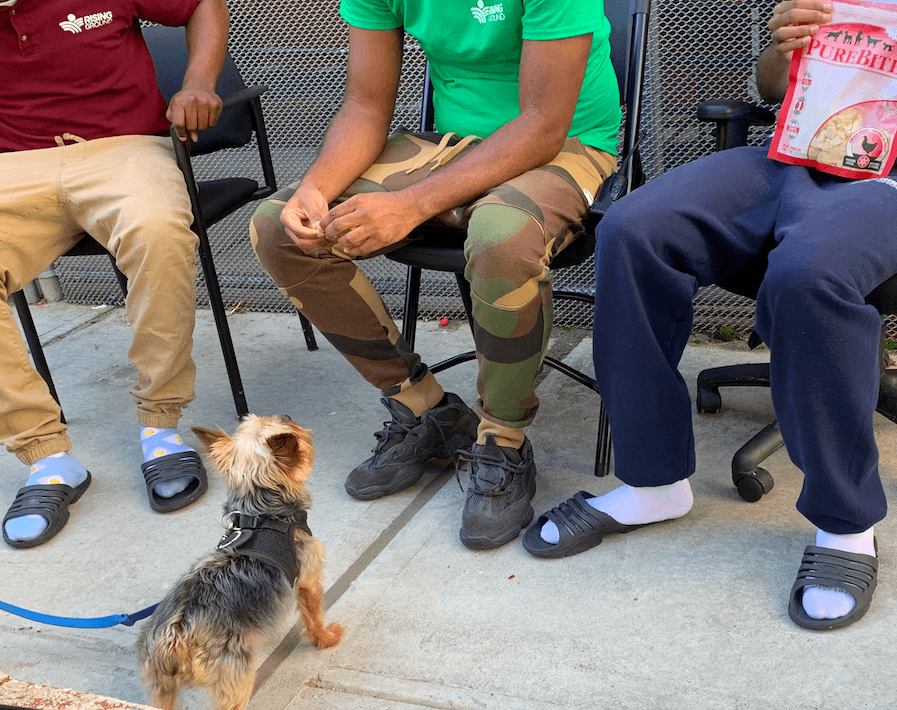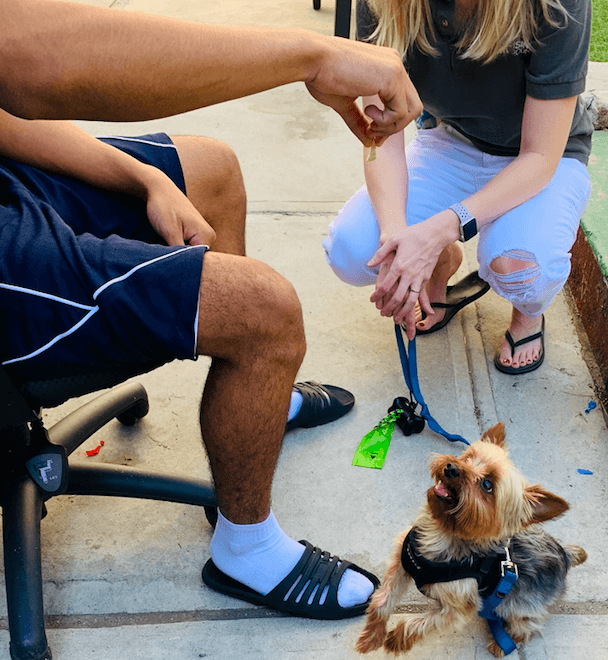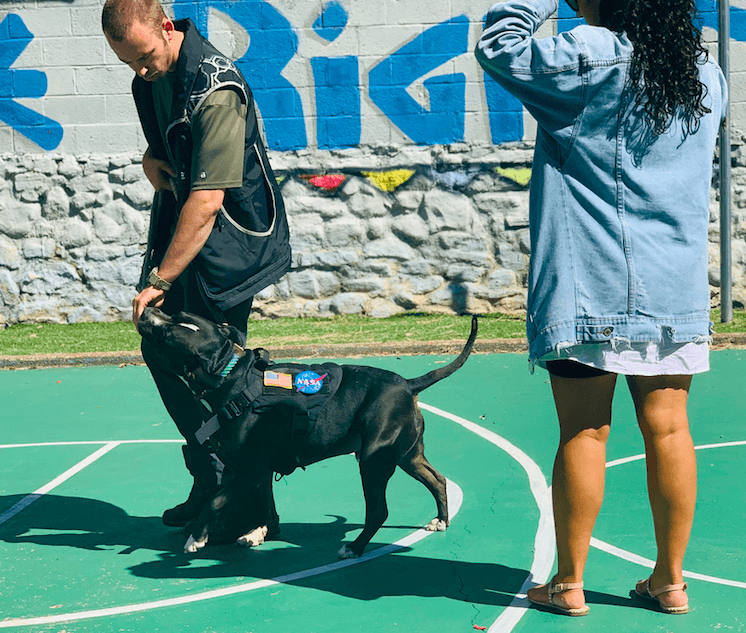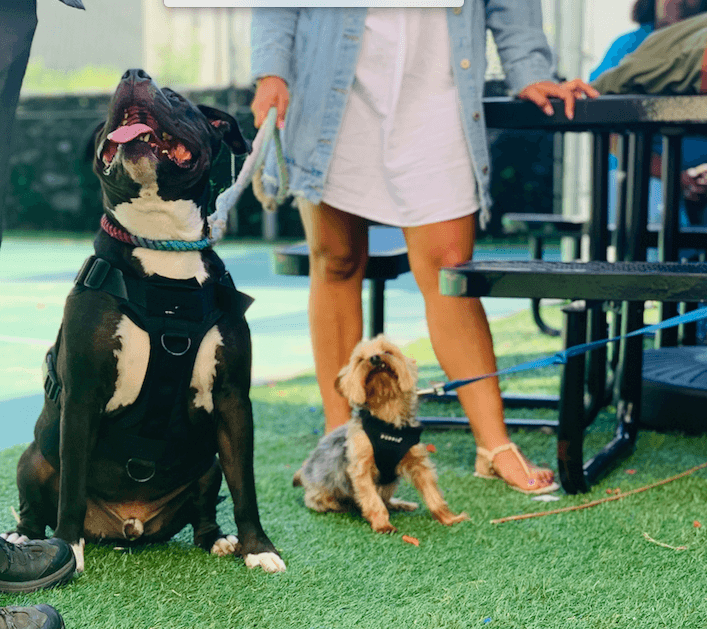On an early Saturday morning in August in Crown Heights, a half a dozen teens are gathering at a local playground. These teens will spend the next few hours cavorting with canines as part of juvenile justice program that teaches court-involved youth how to train pups to become service dogs.
The training is known as the Limited Secure Placement Program led by Rising Ground, nonprofit human services organization that provides children, adults, and families with the resources and skills to discover their inner strengths and rise above their traumatic experiences.

Not only do the juveniles in the program learn to be responsible for another being, they also get a taste of what a career in dog training might be like. As one of the most secure juvenile justice programs in the continuum here in New York City, juveniles get the chance to explore all sorts of activities with a big dog and a small one.
After the kids finish training the dogs, they'll take a test for Therapy Pets Unlimited, the name of the certification.
Josh Abolt, a certified master dog trainer with Backcountry K-9 Training and two young men in the program are joined by Josie, Case Planner at the program with her dog Jamo.

"It's about exposing them to different things; they're learning a whole new skill," said Josie. "There's just a therapeutic aspect when working with dogs, they bring happiness. Some kids are afraid of my dog, it's showing them that a well-trained dog is nothing to be afraid of; you just have to learn how to train them."
Lisa Crook, vice president of Justice for Youth & Families Services at Rising Grounds explained, it's a lot easier to engage the kids through pets, because they can put their feelings on the animal in a different way than with a therapist or a case planner.
Juveniles learn how to practice patience working with two dogs by teaching them to sit when they're not listening and asking them for high fives, rather paw fives.
The short-term goal is getting the kids to learn about something that they may not have otherwise learned. And according to Crook, the approach has been effective so far.
Abolt talks to the youth about the world of dogs, what sorts of jobs are available to them and even the cost of grooming. All of the therapists in the home have multiple pieces of training and certifications so that way they have a tool belt of some evidence-based things, said Abolt.

Art, yoga, and mindfulness are other types of therapeutic activities that take place in the home. Currently, the therapists in the agency are getting trained in Equine certification so that they can bring horses and ponies next for Equine-assisted therapy.
Every therapist in every one of the juvenile justice programs is getting trained.
Rising Grounds is experimenting with a diversity of therapies, because not everything works with every kid. The overall goal is to have an entire therapeutic residence.
With group therapy five days a week facilitated by leaders in the agency, the youth work together to help each other meet his or her individual goals.
Every interaction is about making kids feel safe, so they can open up to any of the learning that's happening, because "Kids are bigger influences on each other's lives than we'll ever be," said Crook.




